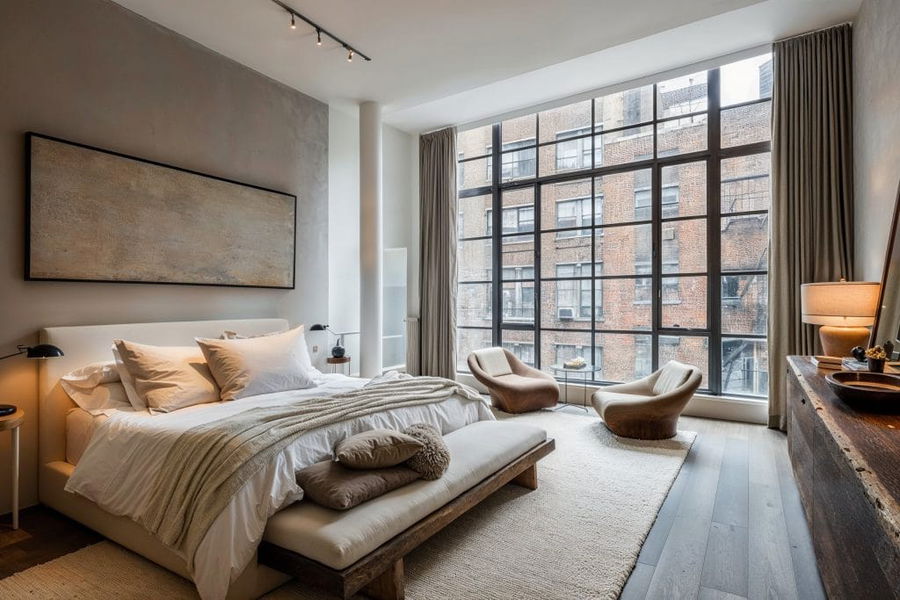
Did you know that your bedroom could help you prosper in life? According to Feng Shui, when all the elements in a room are in harmony, it is bound to do your well-being some good. So, we’ve put together essential bedroom Feng Shui rules to improve sleep and help you thrive. Let’s dive in!
What is Bedroom Feng Shui?
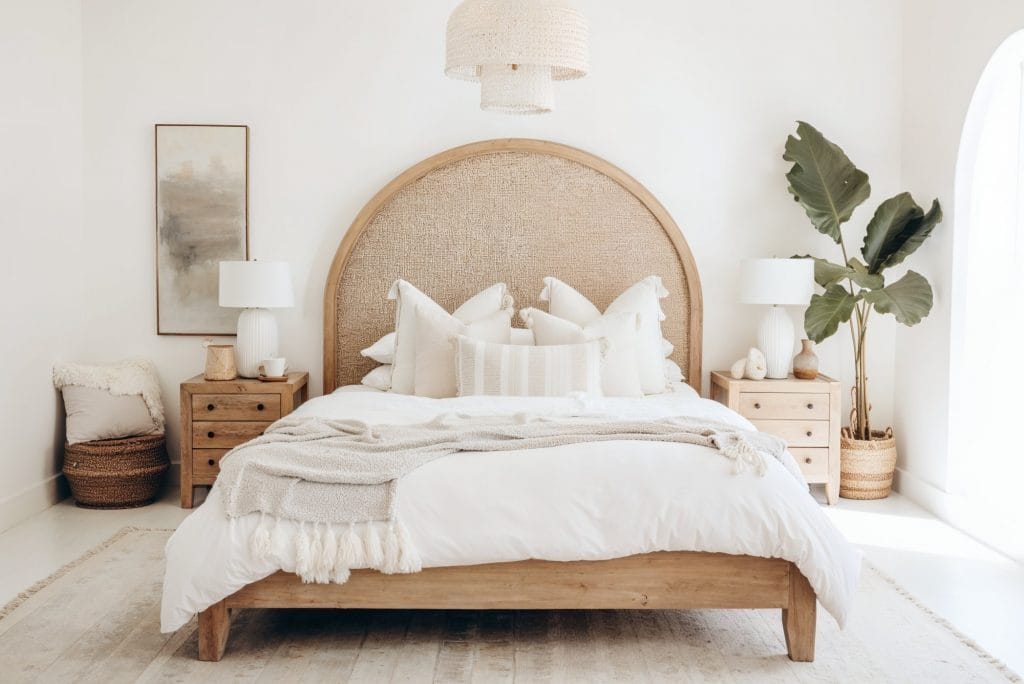
Feng Shui is an ancient Chinese practice gaining recognition worldwide. It relates to building and objects’ best orientation and arrangement to enable positive chi (energy flow). When applied correctly, this energy is believed to bring harmony and prosperity to those who dwell there. And well-being always has its place among popular bedroom trends.
In a bedroom setting, Feng Shui interior design dictates the layout and lighting, among others. These rules also come with surprising exclusions, like living plants. Ultimately, positive energy placement is crucial to good Feng Shui.
Coordinate your Feng Shui bedroom design with your preferred style. Not sure what that is? Then take our Free Interior Design Style Quiz to discover your style!
Bedroom Feng Shui Rules
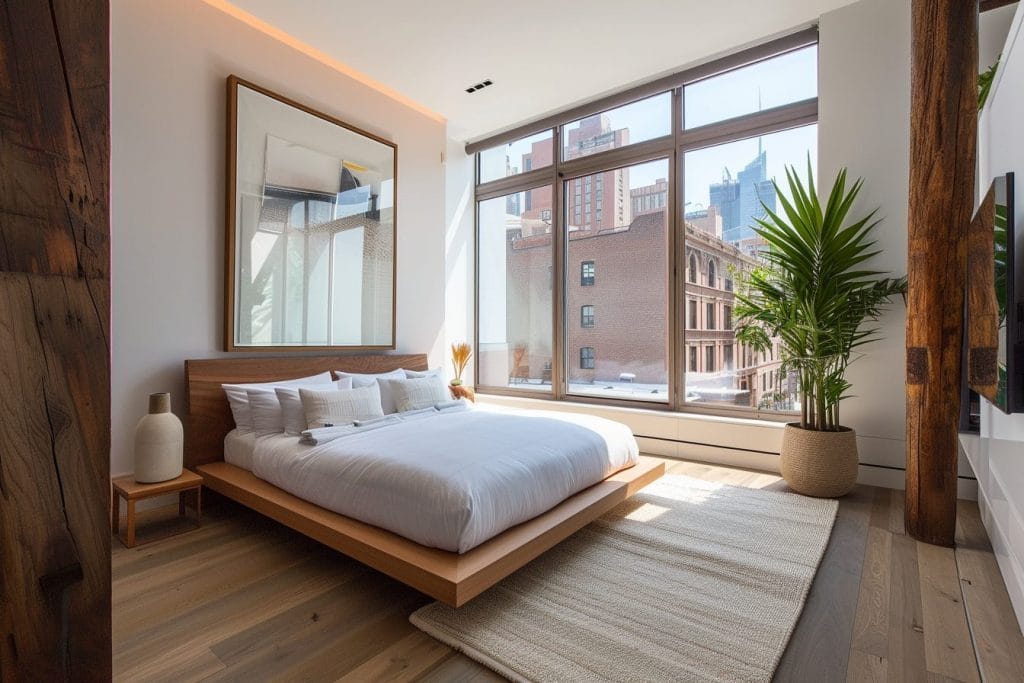
Good Feng Shui brings about a peaceful atmosphere. So it’s no wonder many of its principles have seeped into bedroom trends, and we’ll likely see many Feng Shui imbued interiors. So, here’s all you need to crack the code to a positively energized interior.
Mindful Feng Shui Bedroom Colors
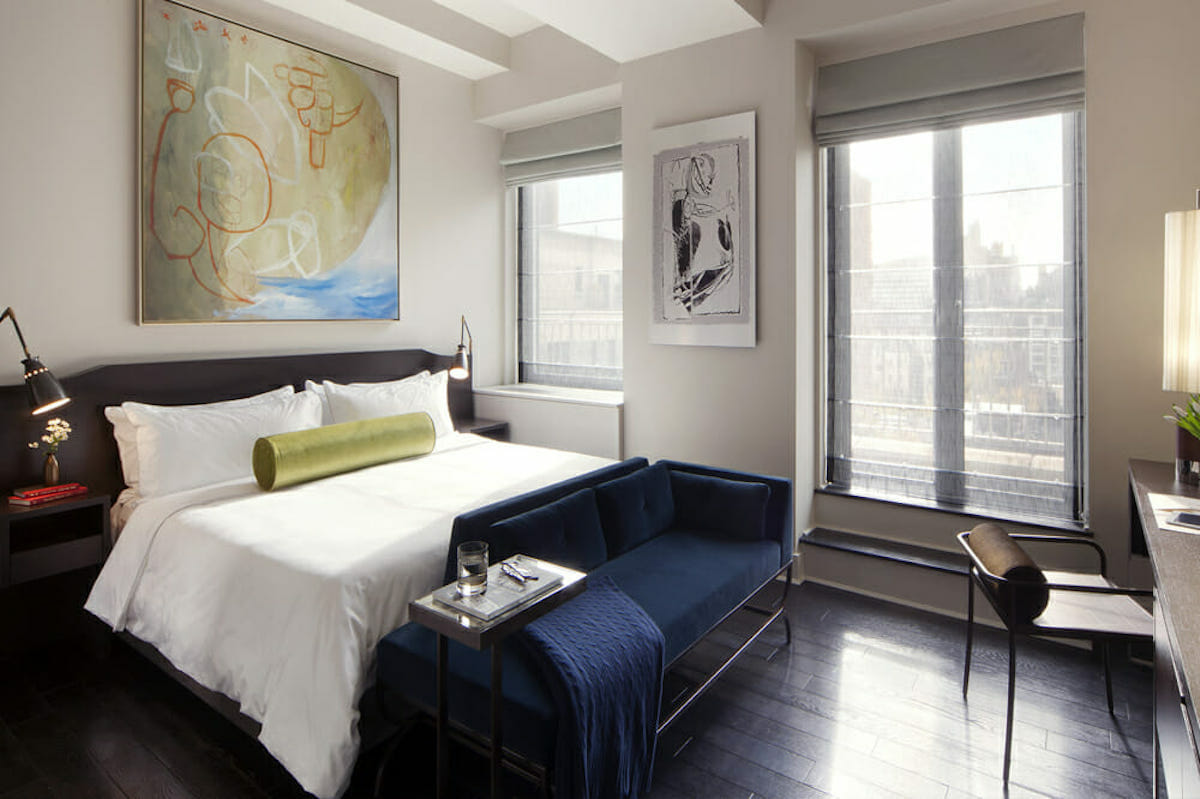
First, it’s vital to consider Feng Shui bedroom colors. They’ll set the tone for the whole interior. Moreover, you can cultivate a specific energy with color according to your needs.
Red and pink, for instance, may attract love and romance. Yellow is good for healing, and green for growth and wealth. Choose an accent hue for bedding or decor but keep the rest of the room neutral for a soothing bedroom interior design.
1. Choose a Neutral Base
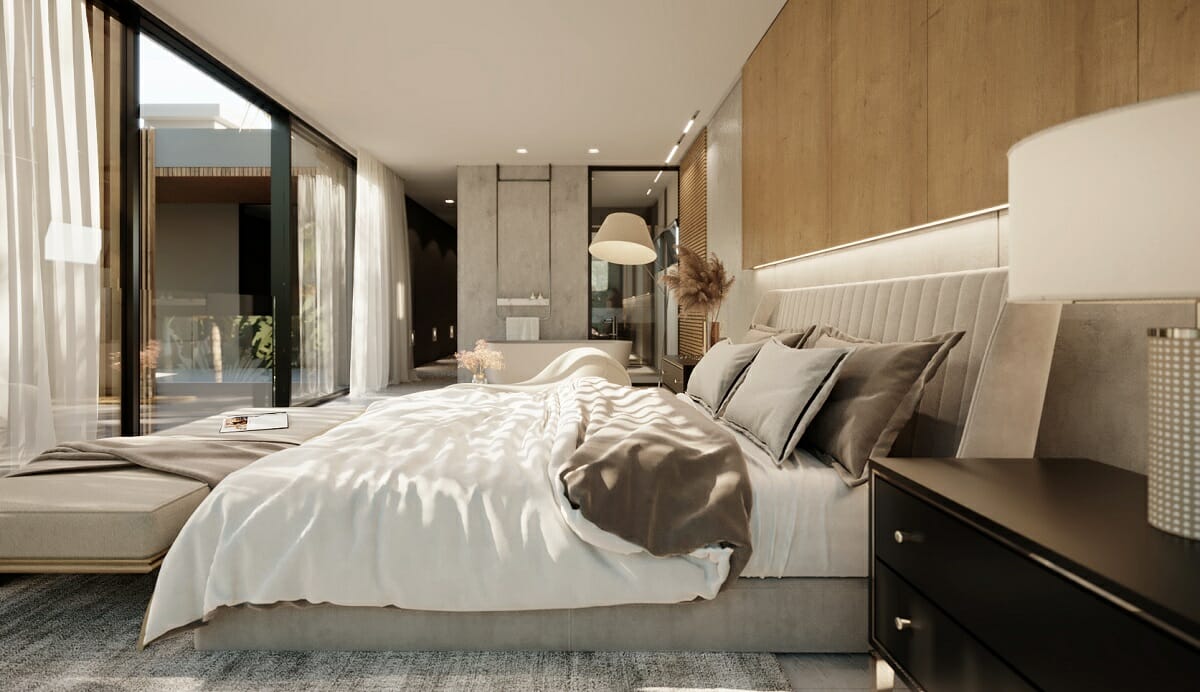
The best base color for a good bedroom Feng Shui is earthy. Opt for warm neutrals, like latte, off-white, cocoa, and coral. Darker shades, like copper and terra cotta, can have a grounding effect. Gentle greens and blue can create a tranquil environment, but be mindful that these hues have different connotations in Feng Shui.
Pastels are also great for Feng Shui. These hues contain white, which brings purity and innocence, and are more likely to promote restful sleep.
2. Accent with Intention
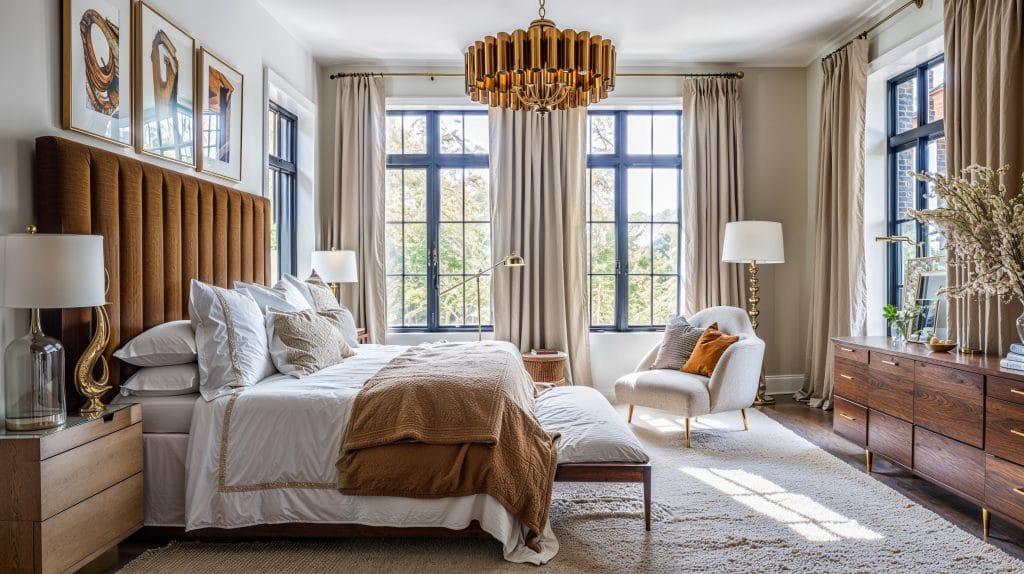
According to Feng Shui, certain colors correspond to the energy map or bagua. Some can be uplifting, while others are draining. You can set an intention through subtle accents, like scatter pillows, a throw, or artwork, in a master bedroom, guest room, and kids’ rooms. The absence of certain hues will also affect the room’s energy.
Feng Shui Bedroom Accent Colors:
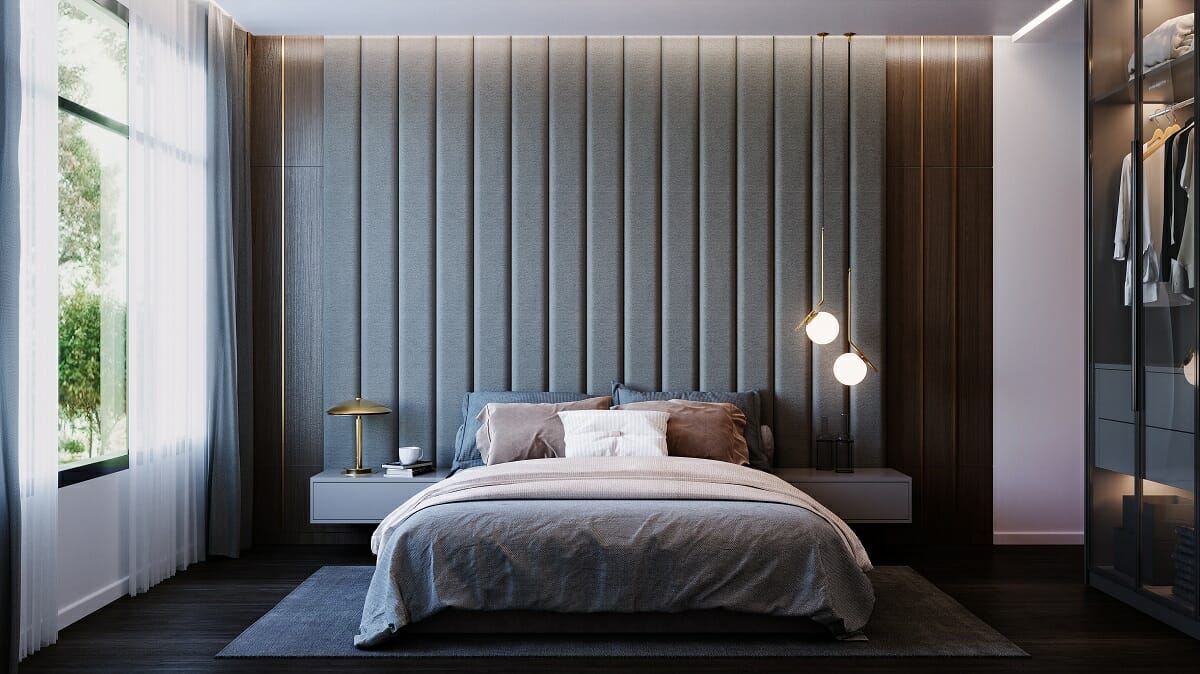
- White can increase goodness and hope. It’s associated with clarity, cleanliness, innocence, and purity.
- Yellow is a highly stimulating hue connected to health. Soft tones in a bedroom can boost optimism, focus, and happiness.
- Green connects to what is possible. It fosters growth, a sense of nature, prosperity, balance, and vitality. However, since green is invigorating, it’s best to avoid it in the bedroom or include in muted tones.
- Blue links to calm, wisdom and truth. It also brings healing, a sense of vastness, and improved social interactions.
- Purple ties in with prosperity and abundance. It’s associated with wealth, spirituality, and royalty.
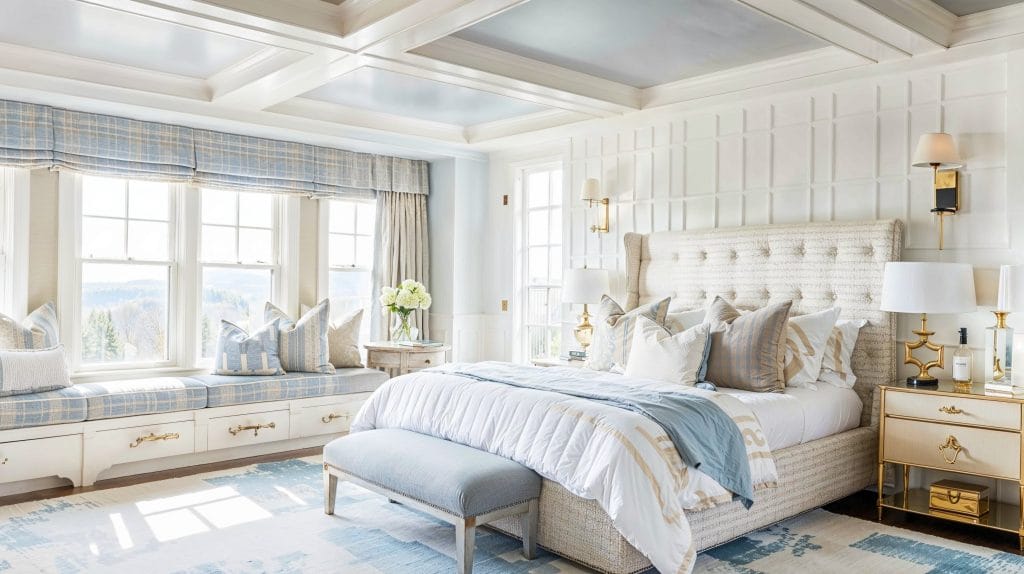
- Red is an intense hue that raises the energy of a room. It’s the color of passion and can keep you up at night – so use it sparingly in your boudoir. Red also links to boldness, daring, fame, luck, and motivation.
- Pink relates to romantic relationships. Since it’s tempered red, pink brings a soft romance to the bedroom. The rosy tone also encourages partnership, feminine energy, love, and nurturing.
- Gray represents unfussy balance. It often needs accent hues to be interesting. Alone, gray represents harmony, helpfulness, calm, neutrality, maturity, and quietness.
- Black is sophisticated. However, it can feel depressive as it’s connected to mourning. That said, black’s positive qualities include power, introspection, mystery, reflection, and protection.
A Feng Shui Bed Charged with Positive Energy
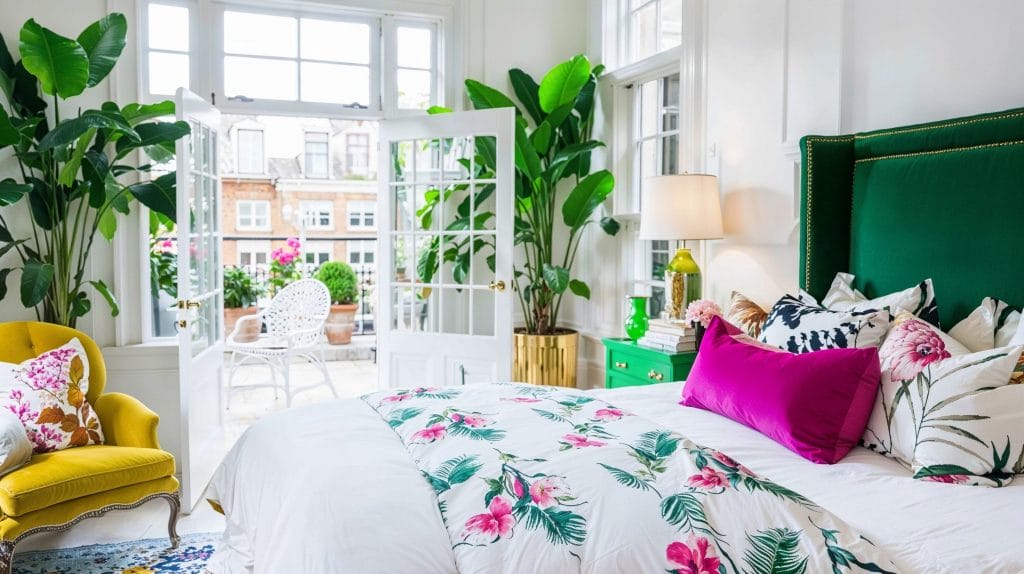
The primary function of a bedroom is to rest, which is why the bed must be the main focus, too. Good bedroom Feng Shui will follow these interior design rules and strengthen a great base.
3. A Bed with Healthy Energy
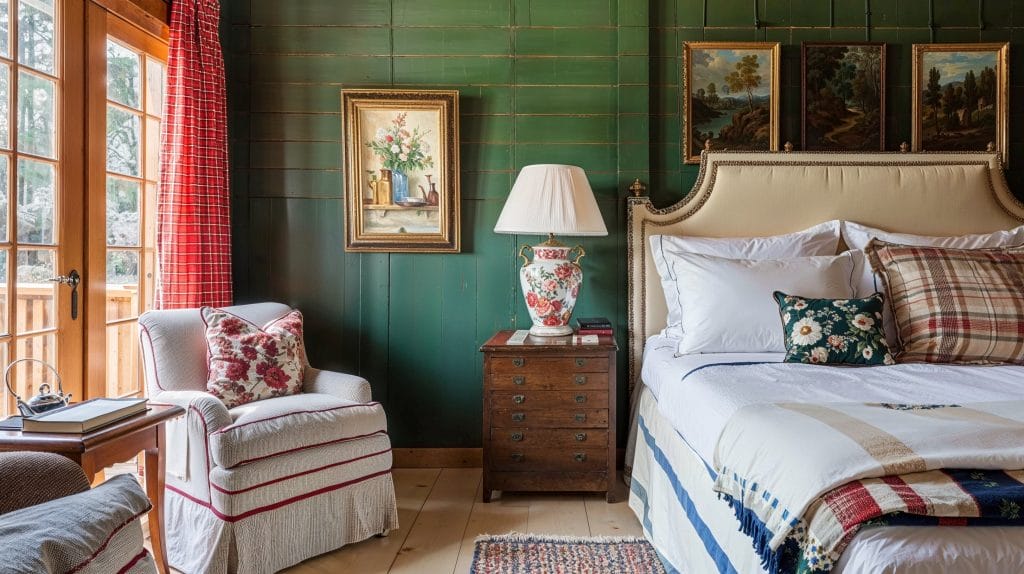
Save up for a new bed because an old one may have bad juju. According to Feng Shui, an old mattress or bed frame is embedded with subtle energetic impressions of the previous owners. So, why not create your mix of positive energy on a new bed?
Here are the ideal times to replace your bed:
- When someone passed away on the bed
- After a breakup
- If anyone sleeping in the bed experienced a severe illness
- When you’re moving to a new house
- Once you get married
Can’t afford a brand-new bed? Then update the mattress and linen for a blank energy slate.
4. Light Bed Shape
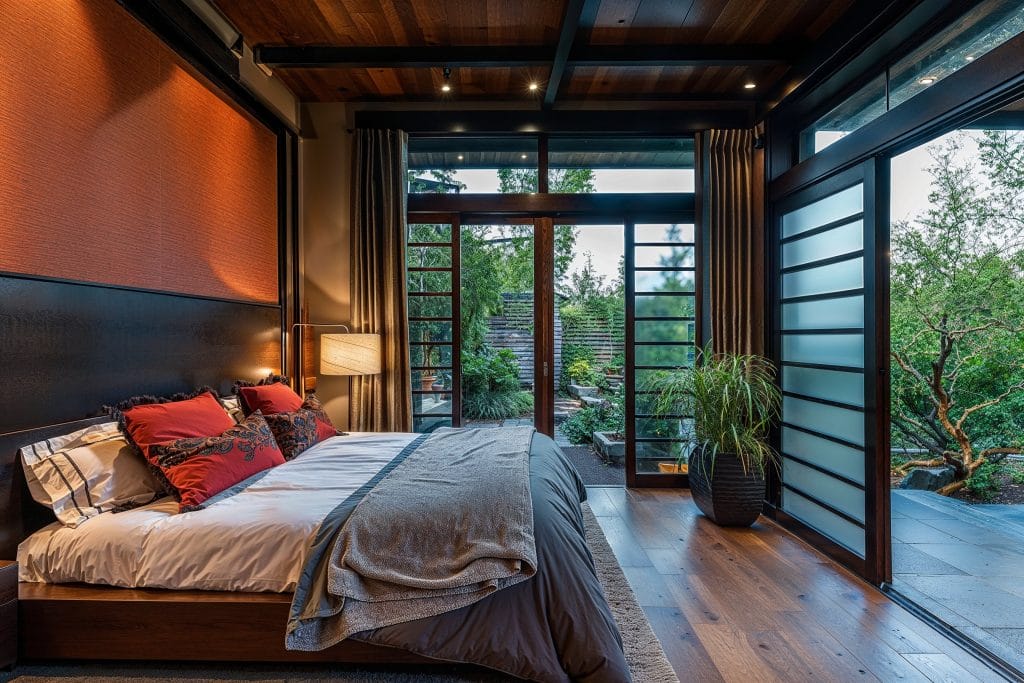
Consider the bed’s shape too. It would be best if you had an appropriately shaped bed to create a soothing space. Keep the bed frame simple and moderate in size. If your bed has built-in drawers, use them to store things related to sleep, as other items can confuse the energy of the sleeper.
Choose wood instead of metal bed frames because metal can distort the magnetic field. In addition, being grounded is one of the critical elements of a good Feng Shui bedroom layout. So, avoid pull-out and water beds that instill a feeling of insecurity or instability.
Free-Flow Feng Shui Bedroom Layout
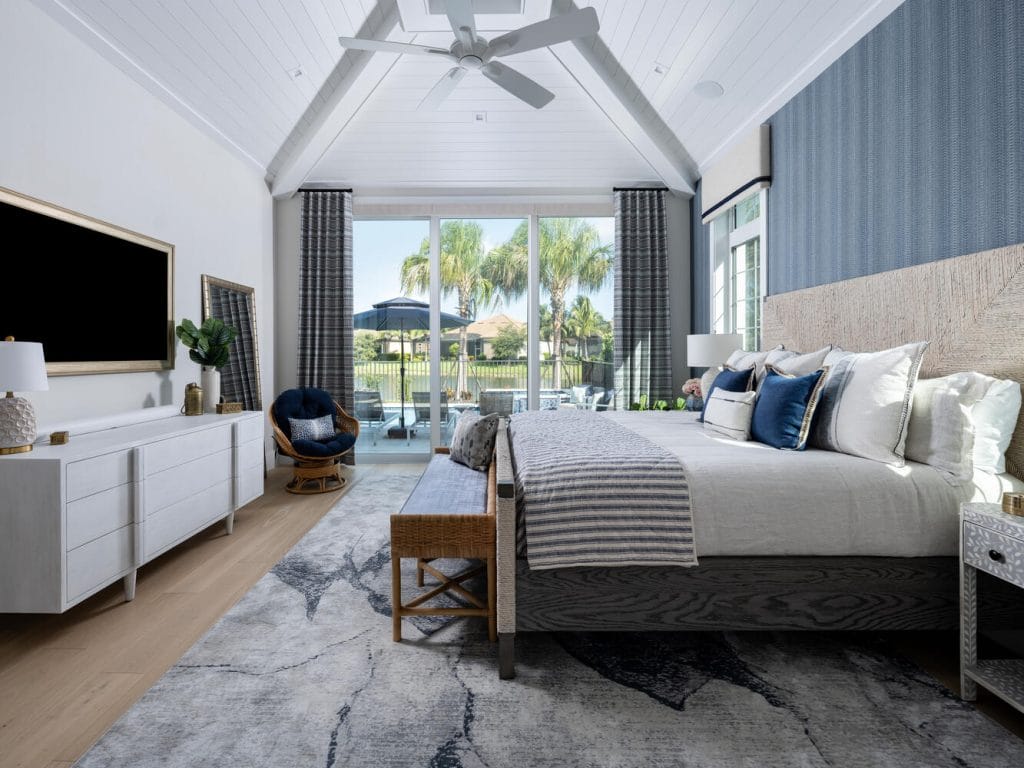
Once you build on a Feng Shui bedroom layout, you’ll be far closer to peaceful sleep than before.
5. Essential Feng Shui Bedroom Layout Basics
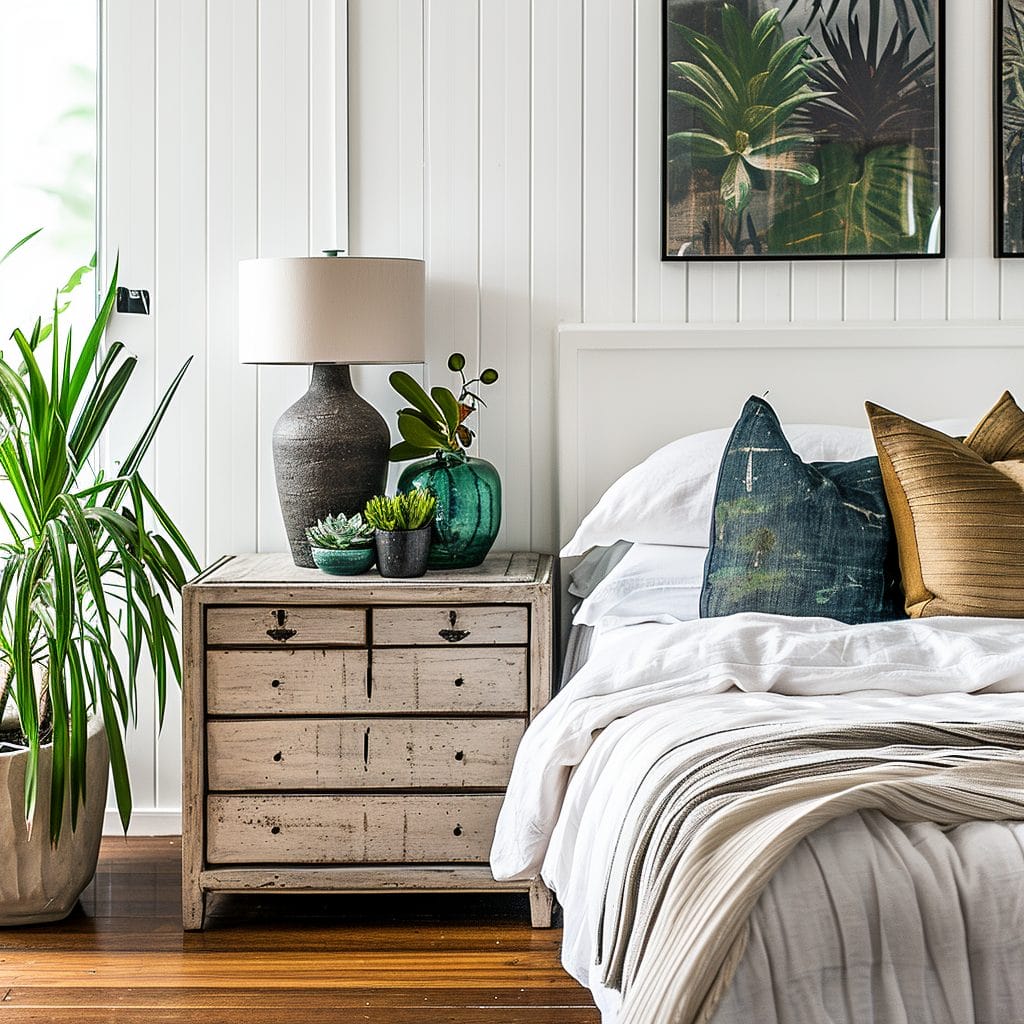
First, you’ll need to get the commanding position for your bed. This Feng Shui bed placement refers to where you are farthest from the door with the widest visual scope of the room. The reason is to feel in control of the space and have the opportunity to grow mentally. And, yes, positive energy placement is possible with Feng Shui in a small bedroom too!
Here’s what you need to do for the best Feng Shui bed placement:
- Place the back of the bed against a wall.
- Allow free-flowing space around the sides and foot end of the bed. So, avoid pushing the bed into a corner, even if your room is small.
- Don’t let the back of the bed face the entrance. Also, avoid placing your bed on the same wall as the door. If you don’t have another option, move the bed as far from the door as possible without pushing the bed into a corner.
- Let the bed face the entrance but not be directly in line with the door.
- If the bed faces a bathroom, keep the bathroom door closed.
- Avoid placing other furniture at sharp angles to the bed. You’ll also limit the risk of injury.
- Since it reflects energy, let your Feng Shui mirror face away from the head of the bed and the outside of the bedroom. The reason for the latter is it may invite external energy into the room.
6. Positioning Around Windows

Placing a bed below or in front of a window is not ideal for good Feng Shui. Energy flows through glass and may keep you up at night. Instead, place your bed at an angle to the window for a positive energy placement of your Feng Shui bedroom.
7. Harmonious Airflow
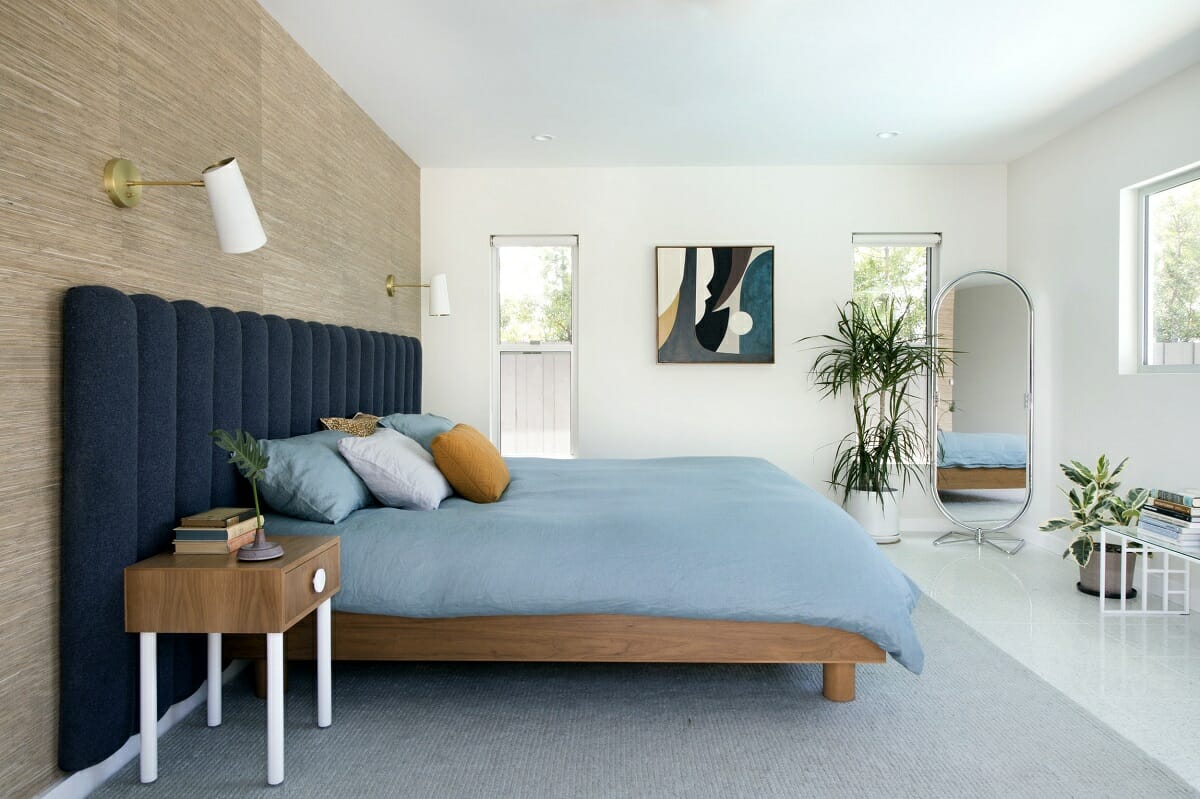
Good airflow at just the right amount is essential to an excellent Feng Shui bedroom layout. Too little air movement could lead to stagnating energies, while too much airflow risks blowing away good chi. Ditch the box bed frame to help the natural passage of energy currents and place the furniture in a way that allows free airflow.
Inspiring Artwork, Décor & Details
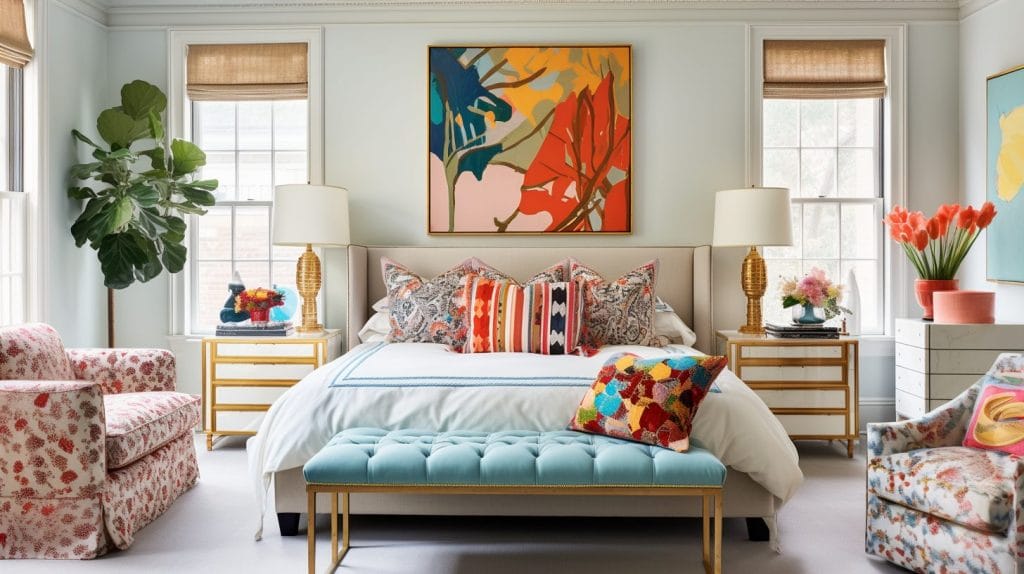
Feng shui bedroom art and décor play a role in setting your intention and the energy you allow into the space. Here are a few key aspects to consider:
8. Pick Art that Reflects You
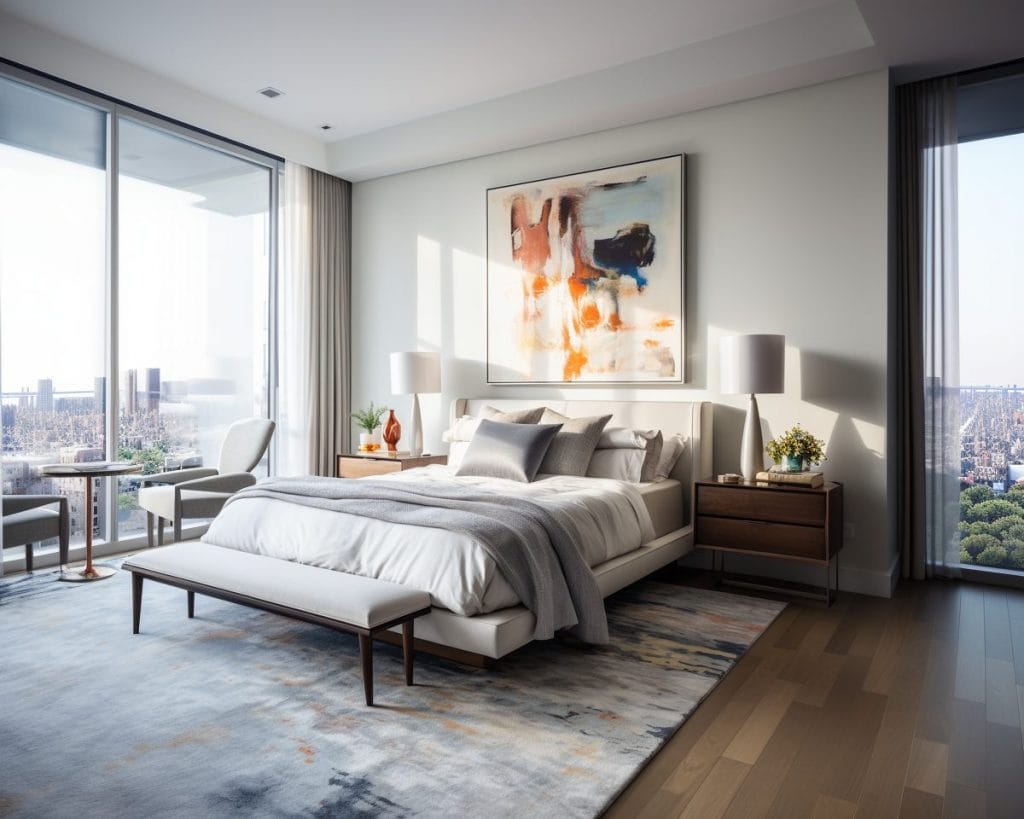
Show what you love. Be meticulous in choosing artwork for your home, especially your bedroom. Choose pieces that resonate with what you want in life and what inspires and makes you happy. Melancholic art can be stunning, but according to Feng Shui principles, they are inappropriate for the bedroom. The reason is that it can inadvertently mimic the emotion in your life.
9. Let the Headboard be Supportive

Avoid leaking or draining energy with the wrong headboard. A solid headpiece can promote career growth and relationship security. However, rigid options with metal bars may resemble imprisonment. So, choose a Feng Shui headboard with limited gaps and holes to promote security in your life.
Mindful Workspace
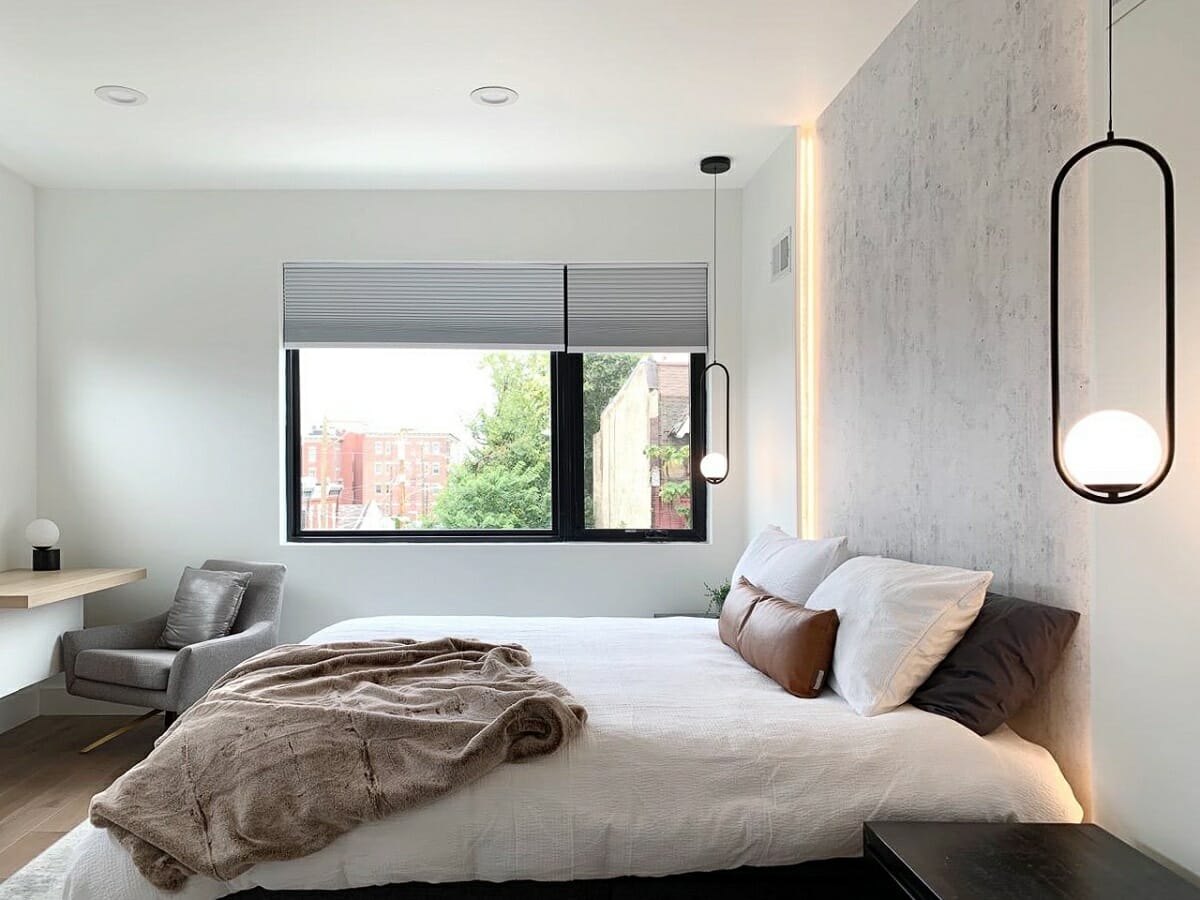
Don’t simply follow bedroom trends, be mindful of what’s best for your needs when creating a workspace. Prioritize bedroom musts, then incorporate the workspace tips as a final setup step.
10. Positive Feng Shui Desk Placement in a Bedroom
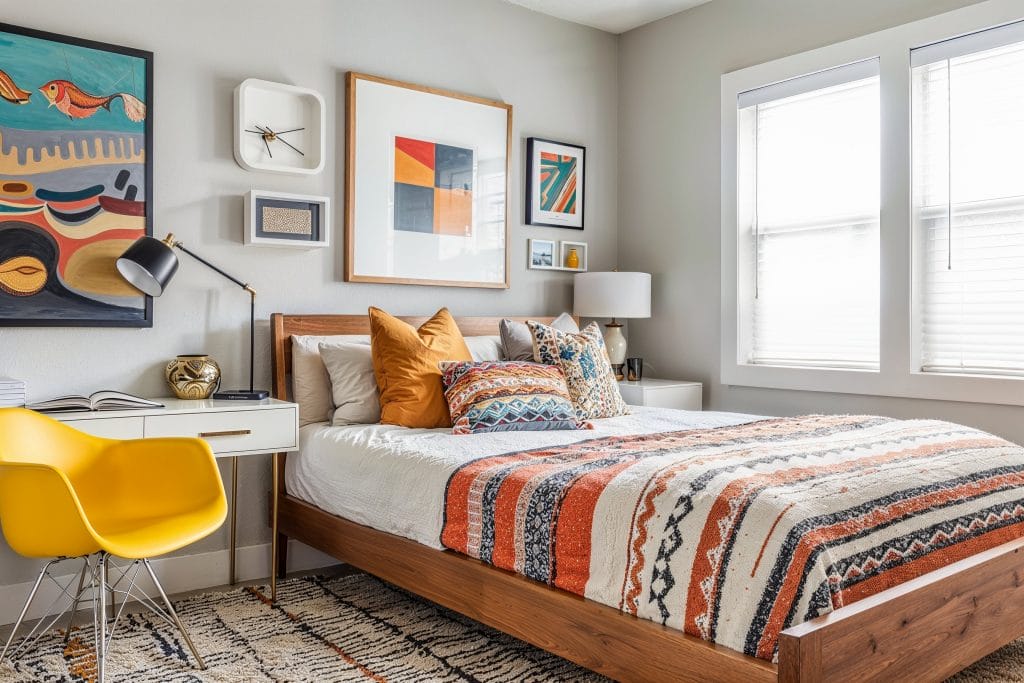
Wherever you place your Feng Shui desk in your bedroom, ensure it’s neutral. You can also incorporate colors and materials (like wood) that promote peaceful sleep.
Placement
Similar to a bed’s placement, a Feng Shui desk must take a commanding position. This will be where you can see the room’s entrance and not right in front of a window. If this isn’t possible, you can place a mirror beside the desk to see the door’s reflection.
Energy Balance
The key is to balance (ying; passive and soft, and yang; active and bright) energies, which is possible even with a workspace in the bedroom. Keeping things organized and adjusting lighting can help this aim. Opt for soft light in the evening to wind down and turn off all tech.
Healing Light
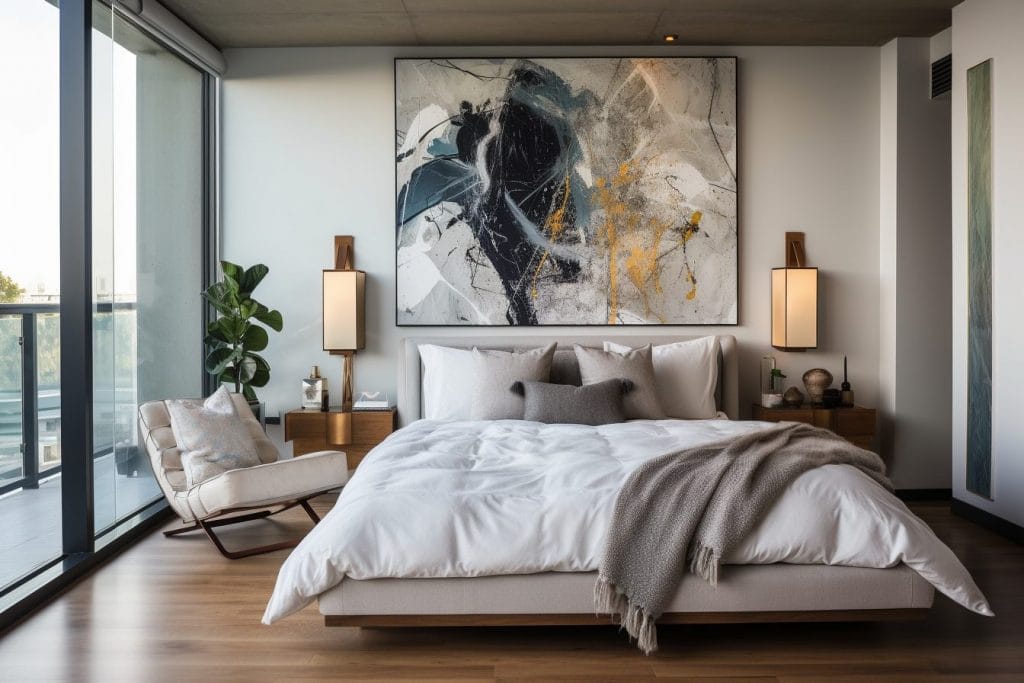
Soft light is a must-have for a relaxing bedroom. Moreover, light can affect the human body differently depending on the source. Natural light is rejuvenating, but it’s best to turn down all lights and close block-out curtains for a blank slate at night.
Candles with natural essential oils or clarifying salt lamps are great for purifying the air and activating energies. That said, be sure to blow out lit candles for a restful evening.
11. Gentle Artificial Light
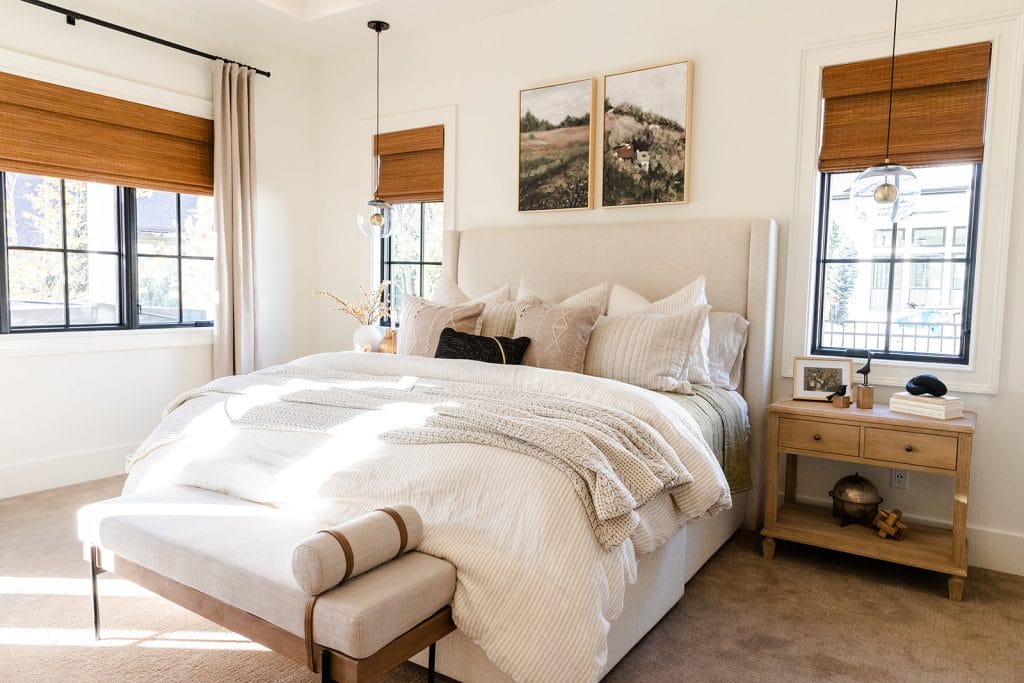
Wall sconces, table lamps, and floor lamps are best for Feng Shui. Downlights with dimmer switches are also a great option. And for a bedroom, it’s best to go for warm white lightbulbs for a restful ambiance.
Opt for light sources that don’t contribute to electromotive force (EMF) pollution. And finally, consider the fixtures’ materials. For example, wood may encourage personal growth, metals intelligence, and crystal success.
Things to Avoid for a Good Feng Shui
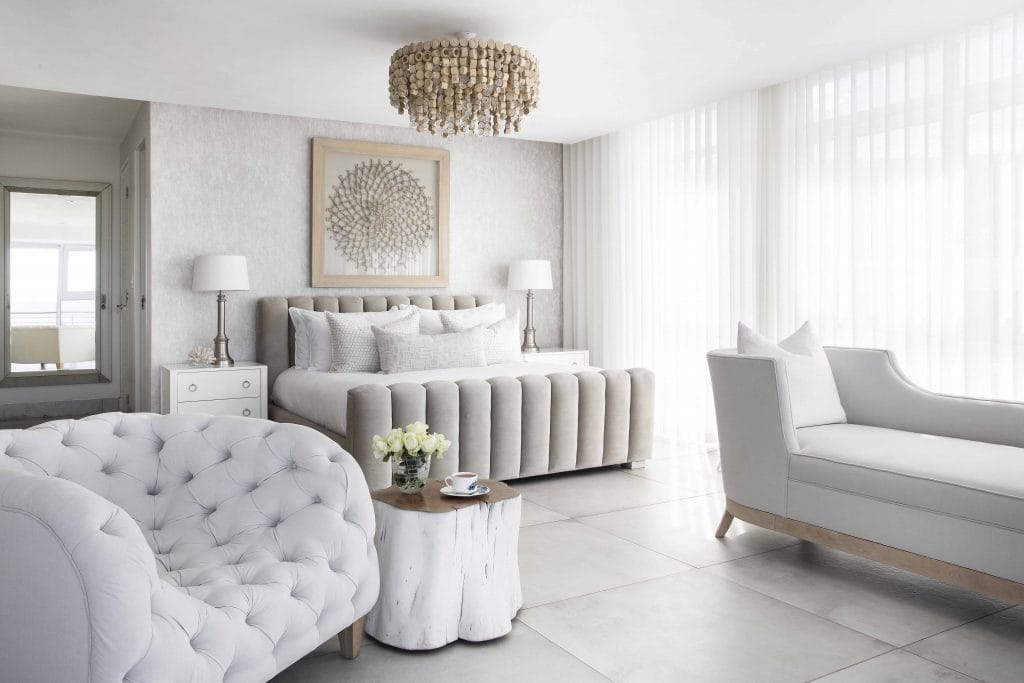
Ban distractions and anything that can detract from a healthy chi. Feng Shui relates to balancing what you have to create the most beneficial energy in your home. However, a few things can deter harmony within your bedroom.
12. No Tech
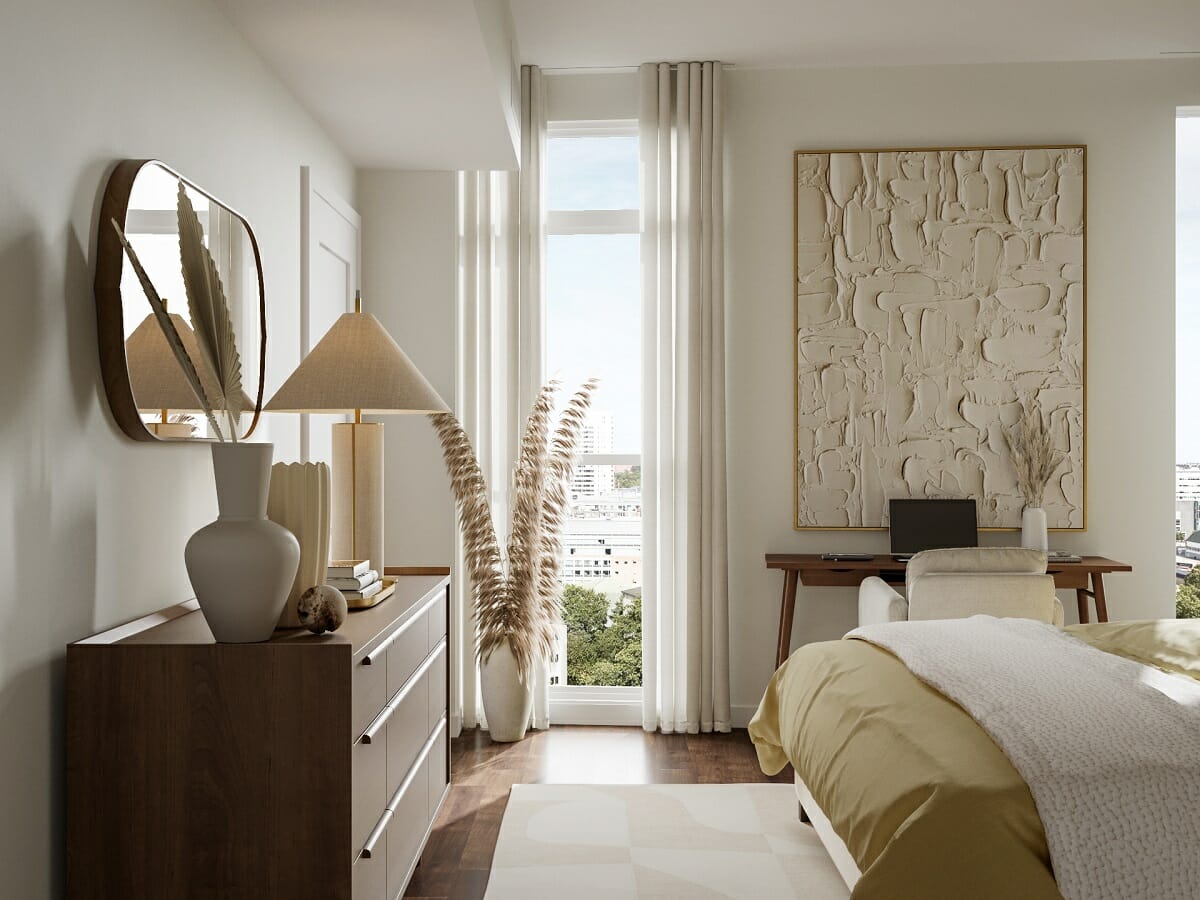
Unnatural light and clutter make the mind uneasy and restless. So, remove electronic devices, exercise equipment, and entertainment items. Your sleep will improve by turning the bedroom into a no-tech zone. However, if you can’t remove tech (for your workspace, for instance), be sure to unplug all equipment before bed.
13. Avoid Overhead Hazards
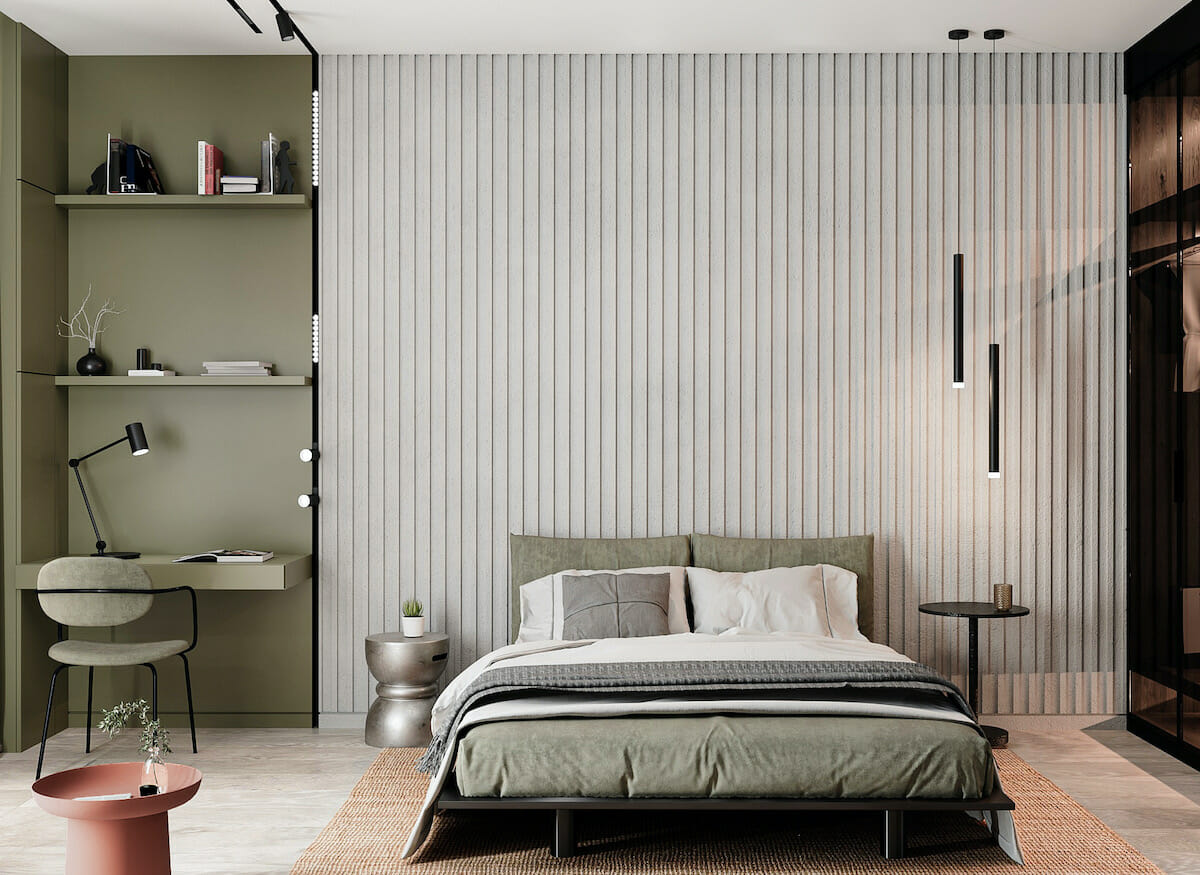
Place the bed underneath a blank ceiling. Sleeping underneath a beam, chandelier, fan, or other dangling décor is considered harmful and a bad Feng Shui idea.
14. Move Living Plants
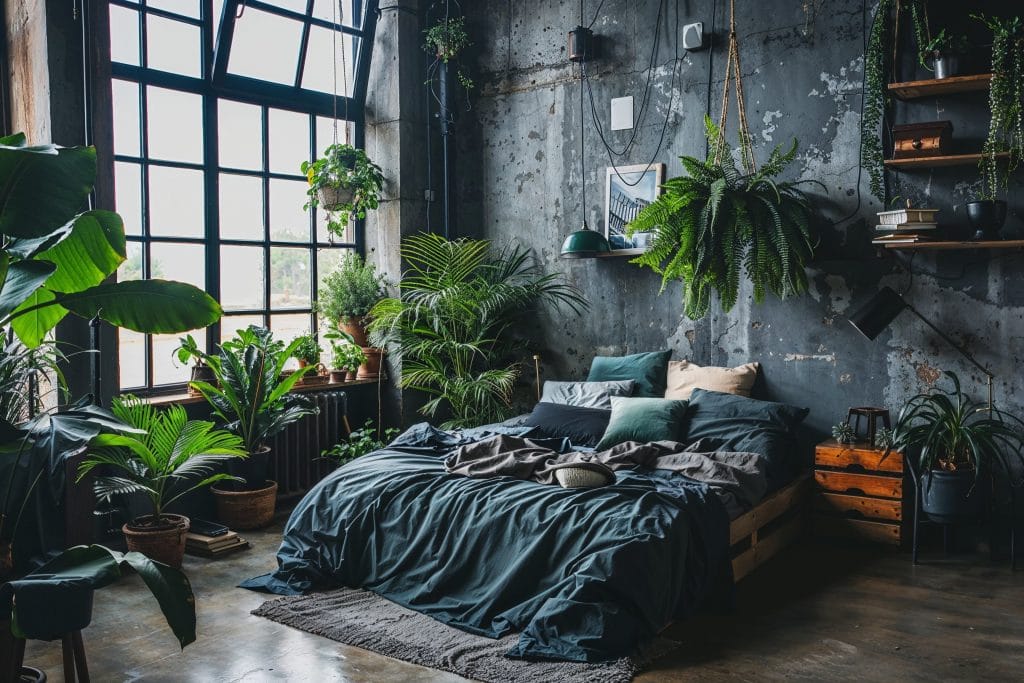
Fresh air helps good energy currents and plants are known for their purifying qualities. However, greenery continue to grow while you sleep, and this vibrant energy may interfere with restful energy. So instead, place Feng Shui plants in the hall leading to your bedroom, on your bedroom’s patio, or en-suite bathroom.
15. Close Open Doors
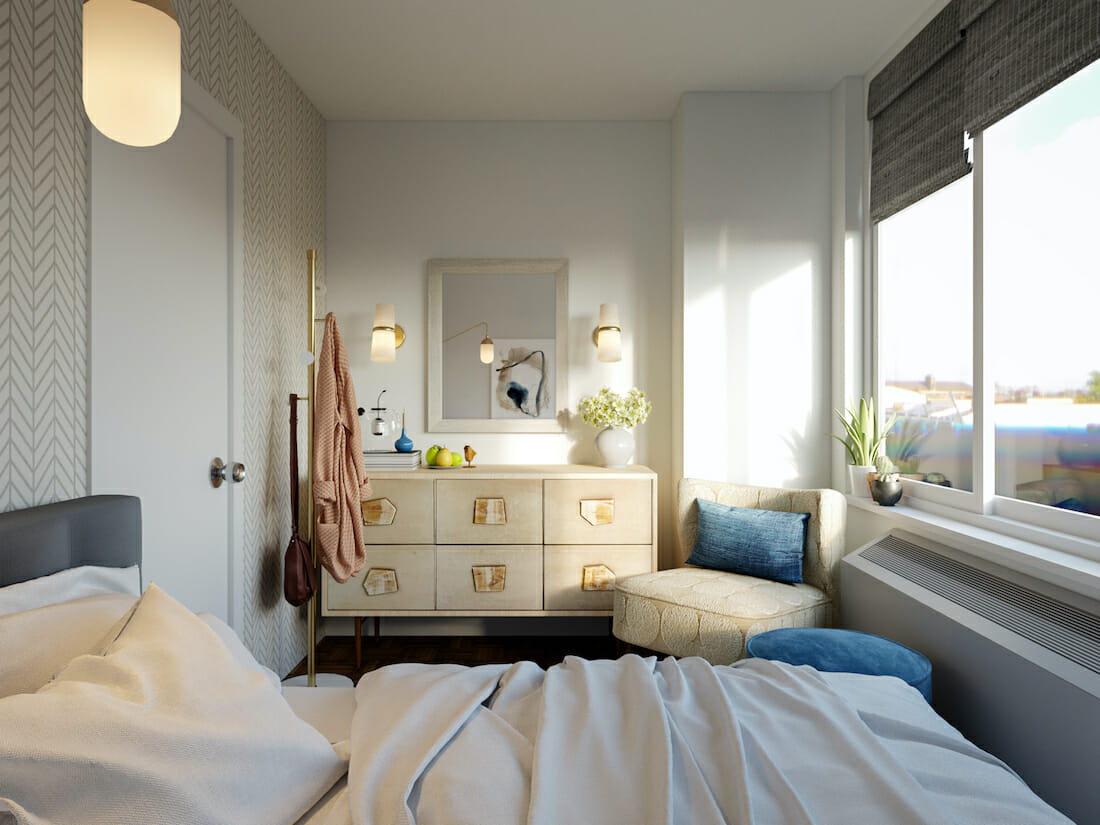
Take the door-closed approach to sleep. The positive effects of a great Feng Shui decor may be blown away with an open door. Instead, care for the energy you’ve guided into a harmonious flow by keeping the door closed.
Want to improve your home’s Feng Shui ?
Get guidance on good bedroom Feng Shui and exceptional design with an a top designer. Schedule a Free Interior Design Consultation to learn more today!












Comments